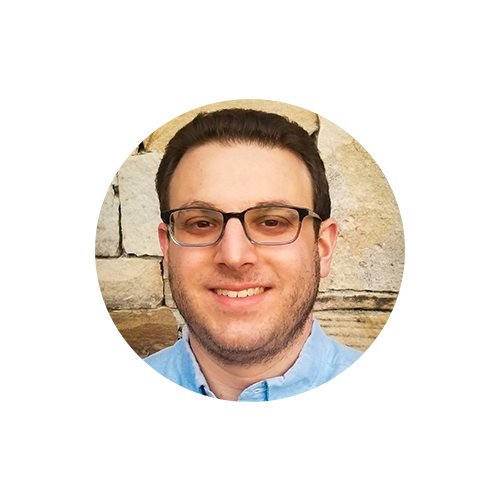Principal Investigator

David Ezra Gordon, PhD
Assistant Professor
Pathology Advanced Translational Research Unit
Department of Pathology & Laboratory Medicine
View Faculty Profile
The Gordon laboratory utilizes high-throughput experimental genetics and proteomics to build mechanistic models of biological functions and applies this knowledge to invent new therapeutic treatments. We are interested in all aspects of human biology, with a focus on virology and the human immune system as these offer tractable genetic systems, an ample supply of primary tissues, and opportunities to rapidly test therapeutic interventions.
Dr. Gordon has a diverse research background spanning cell and molecular biology, experimental genetics, proteomics, virology, and systems biology. As a graduate student at the University of Cambridge he applied combinatorial experimental genetics and proteomics to map redundant vesicle trafficking pathways. Later, as a postdoctoral fellow at the University of California San Francisco, he pioneered the use of high-throughput genetic interaction mapping to study HIV host-dependencies. He also spearheaded the first peer-reviewed protein interaction maps of the highly pathogenic coronaviruses SARS-CoV-2, SARS-CoV-1, and MERS. Gordon’s laboratory builds on lessons learned during these pioneering studies to develop high-throughput experiments in primary systems, to systematically dissect the mechanistic basis of immune functions and infection by pathogens of pandemic concern.
We are affiliated with the Emory University Department of Pathology, which is ranked 6th in the United States in NIH research funding, enabling superb research support and access to state-of-the-art equipment. Based next to the CDC, with ample access to BSL facilities at Emory, we are located at a nexus of infectious disease research, and our location in the Emory Vaccine Center with the Pathology Translational Research Unit provides extraordinary collaboration opportunities with world-leading immunologists. We are within walking distance to Emory University Hospital and the Emory National Primate Center, offering numerous collaborative opportunities in both clinical and animal studies.
Gordon Lab Members

Christian Beusch, PhD
Post Doctoral Fellow
Pathology Advanced Translational Research Unit (PATRU)
Emory University | Department of Pathology & Laboratory Medicine
Christian earned his Bachelor's and Master's degrees in Interdisciplinary Sciences from ETH Zurich (Switzerland). During his time at ETH, he conducted research training within the research groups led by Prof. Ruedi Aebersold, Prof. Beat Christen, and Prof. Paula Picotti, where he developed a strong interest in systems biology and proteomics. After graduating, he pursued an internship at Hoffman-La Roche (Switzerland) before pursuing his doctoral education with Prof. Roman Zubarev at the Karolinska Institute (Sweden). In Prof. Zubarev's lab, Christian not only acquired proficiency in established chemical proteomics methods but also pioneered the development of innovative techniques such as ProTargerMiner, SIESTA, and PISA, among others, and various versions thereof, namely PISA-Express, Ion-PISA, and ResT-PISA. These methodologies have become indispensable tools, utilized not only within the Zubarev lab but also offered as services to core facility clients. Christian's commitment to advancing research extended beyond method development; as he created accessible interactive resources, empowering the broader scientific community to navigate multidimensional proteomics data with ease. Christian's research contributions also encompassed multidisciplinary collaborative projects where his expertise in complementary proteomics methods and data analysis proved invaluable. These collaborations involved analyzing limited samples from sorted immune cells derived from mouse models and unraveling the complex G-coupled protein signaling upon treatment with clinically approved drugs. Moreover, he participated in collaborative efforts with Associate Professor Sergey Rodin and Professor Karl-Henrik Grinnemo from Uppsala University, including a proteomics analysis of aortic valve biopsies to uncover differences in pathological processes within the extracellular matrix, bridging clinical research with system-wide proteomics approaches. Working with the Gordon Lab, Christian integrates his extensive proteomics knowledge with primary cells and genetic manipulation, with a particular focus on studying immune cell functions. In 2023, Christian was awarded a prestigious international Postdoctoral fellowship from the Swedish Research Council.

Chris Monaco
PhD Student
Pathology Advanced Translational Research Unit (PATRU)
Emory University | Department of Pathology & Laboratory Medicine
Chris received his B.S. in Electrical Engineering and M.S. in specialty Bioinformatics from Georgia Tech and is currently a PhD student in the molecular and systems pharmacology program at Emory University.
Prior to starting his PhD, Chris work worked to develop new molecular assays and custom laboratory equipment at the CDC: combining his scientific and engineering acumen to expand the capabilities of CDC scientists across the agency. At CDC, he played an active role in the development of diagnostic assays for SARS-CoV-2, collaborating with a global consortium of researcher evaluating novel alternatives to traditional PCR-based tests. Chris also has experience in K-12 education and is a passionate advocate for community outreach and involvement in cutting-edge science.
He joined the Gordon Lab/PATRU in 2023 as a rotation student working on understanding cytokine signaling networks through proteomic analysis.

Carolyn Morningstar
PhD Student
Pathology Advanced Translational Research Unit (PATRU)
Emory University | Department of Pathology & Laboratory Medicine
Carolyn received her B.S. in Biochemistry from Juniata College and M.S. in Biochemistry and Biophysics from Brandeis University. She is currently a PhD student in the Biochemistry, Cell, and Developmental Biology program at Emory University.
At Juniata, she had an undergraduate research project to investigate the predicted structure of di-manganese superoxide dismutase and manganese catalase in bacteria. During her time at Brandies, she worked in Dr. Dorothee Kern’s lab researching the regulation of the protein-tyrosine phosphatases SHP1 and SHP2 and how this regulation evolved with the use of ancestral sequence reconstruction and kinetic assays. Additionally, she had a summer internship at C4 Therapeutics where she worked on the development of a small-molecule assay of amyloid protein aggregation for future drug development.
She joined the Gordon Lab/PATRU in 2024.

Jae-Kyun (James) Ko, PhD
Academic Scientist
Pathology Advanced Translational Research Unit (PATRU)
Emory University | Department of Pathology & Laboratory Medicine
Dr. Ko obtained PhD in Physiology and Biophysics from the Rutgers University, Robert Wood Johnson Medical School. With over 25 years of dedicated research experience, Dr. Ko is a renowned molecular and cell biologist for pioneering research in both commercial and academic settings. One of his notable achievements is inventing an innovative site-directed mutagenesis technique, which catalyzed the establishment of Mutagenex, a biotech venture company. Since 2006, he has led Mutagenex, offering advanced mutagenesis, vector construction, directed evolution, and cell line generation services to over 700 labs in 26 countries, showcasing the impact of his research and entrepreneurial spirit.
Between 2018 and 2022, Dr. Ko furthered his academic pursuits by founding the Molecular Biology Core Laboratory at Ohio State University and serving as a co-investigator on three NIH-R01 grants, securing a total of $5.56 million in funding by designing and creating key DNA constructs, cell lines, and bioassay systems. Dr. Ko spearheaded the development of highly efficient and quick screening techniques for CRISPR/Cas9-mediated gene editing and knockout in various cell lines, including human induced pluripotent stem cells (iPSCs). Dr. Ko also explored the therapeutic potential of MG53, a membrane-targeting Ub E3-ligase protein, for treating tissue injuries, integrating genetic engineering with computational approaches to manipulate protein structure and function effectively.
RESEARCH INTERESTS
Currently, Dr. Ko’s research interests include development of a novel platform for production of next-generation biopharmaceuticals by creating cell lines modulating Ub/proteasomal degradation pathway, ultimately leading to superior protein production by blending his expertise in innovative site-directed mutagenesis and CRISPR/Cas9 gene editing to drive innovation.
Since November 2023, Dr. Ko has joined the laboratory of Dr. David Ezra Gordon, where he investigates key T-cell signaling genes identified through phosphoproteomics using CRISPR/Cas9-mediated genetic perturbation techniques. This collaborative effort underscores Dr. Ko's commitment to advancing our understanding of cellular signaling pathways and their implications for human health and disease.
PUBLICATIONS: NCBI PubMed

